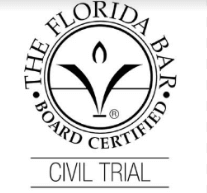
Unauthorized Access: A Negligent Security Case
Visual artist Craig Krefetz in 2003 was staying at a friend’s house in a gated community near Boca Raton while preparing for an art show. He heard knocking at the front door and was surprised to hear the voice of the homeowner’s former domestic helper. The homeowner and Krefetz suspected the woman of being behind a break-in, theft and vandalism that had occurred previously. Because of those suspicions, the community gate security team had been given specific instructions not to let her in. She was let in anyway. While Krefetz didn’t want her to come into the house, the homeowner — who wanted to ask her about the break-in — overruled him. Krefetz let her in, retreated to his room and locked the door. About 45 minutes later, he heard the homeowner screaming for help.
When Krefetz went to investigate, the woman jumped him and repeatedly stabbed and slashed him with a knife. She punctured his lung. He has a distinct memory of one first responder telling another that he had lost too much blood and would die. He was airlifted to a hospital, spent five days on life support and survived. He spent years recovering physically and developed post-traumatic stress disorder. The homeowner, likewise, was slashed and hospitalized. He died within a few days, though a medical examiner decided he died of a heart condition, not the attack.
The attacker served eight years in prison. Krefetz is still upset he didn’t receive restitution from her. He also wonders how she ever got past the guard gate. “There was negligence there, no doubt,” he says.
Darryl Kogan of Kogan & DiSalvo, a personal injury attorney, filed suit on his behalf. Kogan won Krefetz a six-figure settlement from the security company that staffed the gate and from the homeowners association. (There was a confidentiality agreement in the settlement that Kogan says prevents him from disclosing the amount.) Krefetz says the money paid his medical bills and “put a little money in my pocket.”
Tort Law Changes
Kogan says that under the tort law changes the Legislature approved this year, Krefez’s case wouldn’t be brought. Now, the criminal in such a case of “negligent security” must also be listed on the verdict form juries use when they apportion liability and damages.
“Since a very large portion of the fault would be attributed to her for causing the injury, cases like Craig’s will no longer be viable,” Kogan says. “The negligence or fault of the security company and HOA would be far overshadowed by the fault of the intentional tortfeasor (the woman who attacked Krefetz), making this case a nonstarter under the new laws.”







